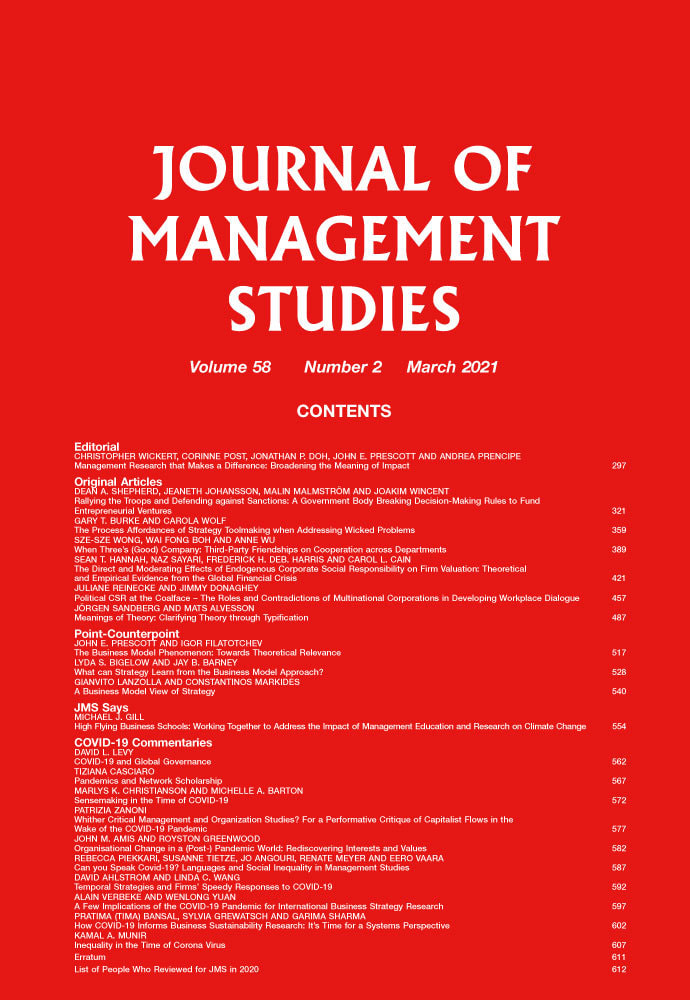Publications
|
Generating, Grading, and Ghosting: How Organizing Experts Shapes Expertise
Experts increasingly refine their expertise into specialties as they labour in and around organizations. Yet, previous research assumes that experts are organized in the workplace in ways that passively accommodate or mirror pre-existing specialties and focuses on organizational structures that codify the content of experts’ knowledge as an encroachment. Drawing on a qualitative field study in an aeronautical organization's engineering unit, this paper examines the organizational structures that chart the area of experts’ knowledge, i.e., their specialties. The findings show that organizational structures are generative, defining the contours of existing expertise and catalysing the formation of new ones (generating). However, organizational structures also encode criteria that implicitly rank some forms of expertise over others, thereby reinforcing status hierarchies (grading), and misalignment across organizational structures renders some forms of expertise invisible (ghosting). By showing the active role of organizational structures in shaping expertise rather than simply housing it, this paper contributes to our understanding of expertise development as well as status dynamics and access to resources among experts. Further, the paper reveals how misalignments across multiple organizational structures may impact the management of knowledge and human capital. |



